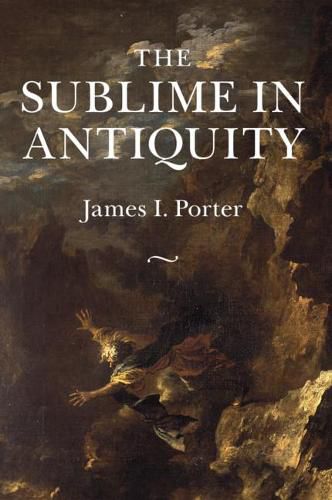Readings Newsletter
Become a Readings Member to make your shopping experience even easier.
Sign in or sign up for free!
You’re not far away from qualifying for FREE standard shipping within Australia
You’ve qualified for FREE standard shipping within Australia
The cart is loading…






Current understandings of the sublime are focused by a single word (‘sublimity’) and by a single author (‘Longinus’). The sublime is not a word: it is a concept and an experience, or rather a whole range of ideas, meanings and experiences that are embedded in conceptual and experiential patterns. Once we train our sights on these patterns a radically different prospect on the sublime in antiquity comes to light, one that touches everything from its range of expressions to its dates of emergence, evolution, role in the cultures of antiquity as a whole, and later reception. This book is the first to outline an alternative account of the sublime in Greek and Roman poetry, philosophy, and the sciences, in addition to rhetoric and literary criticism. It offers new readings of Longinus without privileging him, but instead situates him within a much larger context of reflection on the sublime in antiquity.
$9.00 standard shipping within Australia
FREE standard shipping within Australia for orders over $100.00
Express & International shipping calculated at checkout
Current understandings of the sublime are focused by a single word (‘sublimity’) and by a single author (‘Longinus’). The sublime is not a word: it is a concept and an experience, or rather a whole range of ideas, meanings and experiences that are embedded in conceptual and experiential patterns. Once we train our sights on these patterns a radically different prospect on the sublime in antiquity comes to light, one that touches everything from its range of expressions to its dates of emergence, evolution, role in the cultures of antiquity as a whole, and later reception. This book is the first to outline an alternative account of the sublime in Greek and Roman poetry, philosophy, and the sciences, in addition to rhetoric and literary criticism. It offers new readings of Longinus without privileging him, but instead situates him within a much larger context of reflection on the sublime in antiquity.